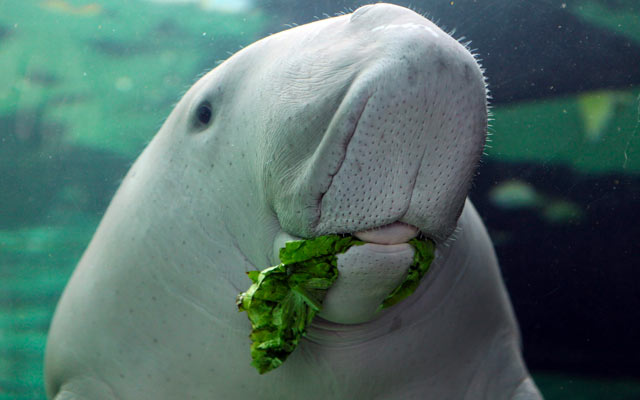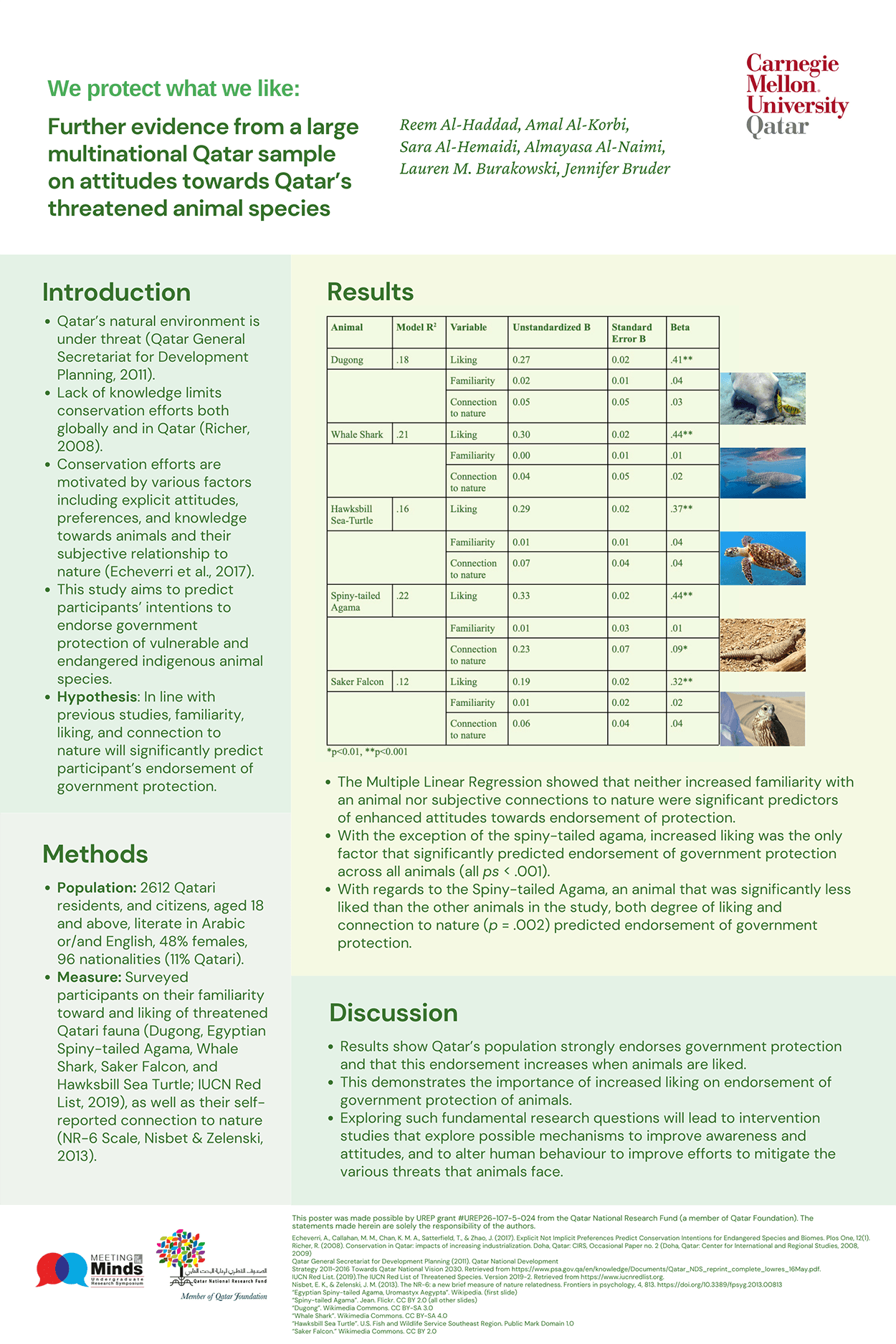Human behaviors that promote conservation of animals are motivated by various factors including a person’s explicit attitudes, preferences, and knowledge towards the animals and their subjective relationship to nature. This study employs multiple linear regression to predict the intentions of the Qatari resident and citizen population (N = 2612) to endorse conservation of vulnerable and endangered indigenous animal species. Vulnerable (Dugong, [Egyptian] Spiny-tailed Agama), endangered (Whale Shark, Saker Falcon), and critically endangered (Hawksbill Sea Turtle) animal species were chosen from the International Union for Conservation of Nature’s Red List for Threatened Species. Using Qualtrics, participants answered questions about their explicit connection to nature (NR-6 Scale, Nisbet & Zelenski, 2013), their familiarity with each species, the degree to which they liked each species, as well as their attitude toward the need for the prioritization of government protection.



